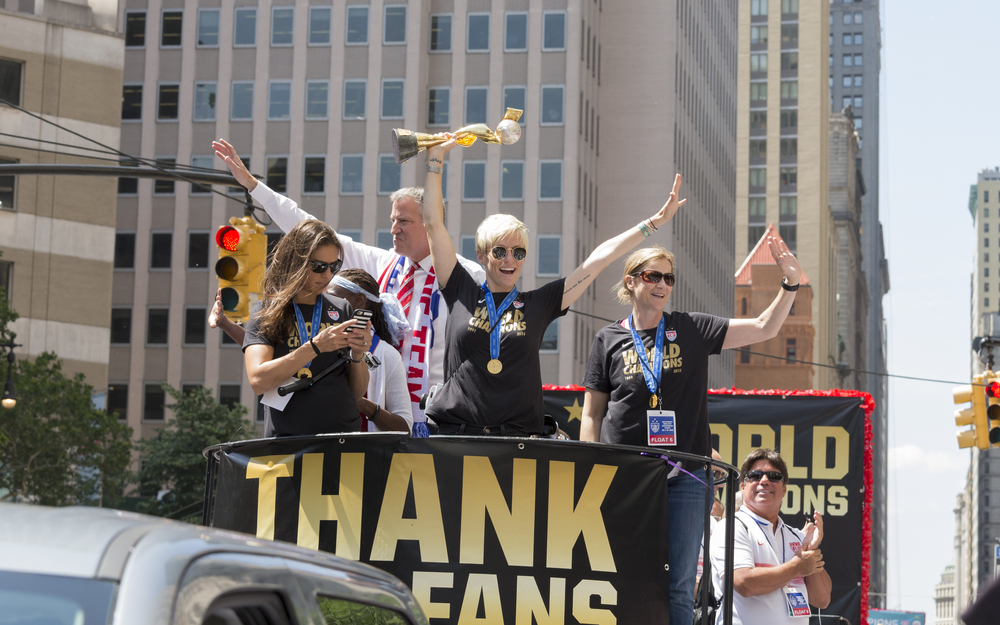After a long battle that involved a federal complaint of wage discrimination, legal team changes, and very public rancor between the players and U.S. Soccer, the U.S. women’s national soccer team has won a contract that, according to The Guardian, “everyone seems happy [with].”
According to the write-up in The New York Times, the players successfully negotiated for a 30% increase in base pay and “improved match bonuses that could double some of their incomes, to $200,000 or $300,000 in any given year.” The bonuses are even bigger in World Cup or Olympic years.
They also negotiated for less obvious, but no less important, benefits: better financial support for pregnant players and players working to adopt children, improved travel conditions, players’ control of certain marketing and licensing rights–and a better environment for young female soccer players to grow up in.
“The players began to press for changes that they saw as vital to the long-term growth of their game. Those changes, they argued in detailed slide presentations during increasingly frequent negotiating sessions, would improve the game outside the narrow ecosystem of the national team and also establish a structure to support both their careers and those of the next generation of American women.
As a result, the new agreement includes commitments from U.S. Soccer for its continued support of the domestic professional league, the N.W.S.L., as well as requirements that the federation improve standards in the league and – through sizable increases in camp and roster bonuses for players not under contract with U.S. Soccer – transfer money to players who exist on the periphery of the more established national team pool.”
While the details of the contract are heartening, my favorite part of this story is how the team got here. It’s a testament to all that women can accomplish when they work together in solidarity. The New York Times described an atmosphere of cross-country collaboration: “in text messages and phone calls, in hotel rooms and on bus rides, and at their homes in far-flung cities, the players fine-tuned their needs and their arguments and their solidarity.” The negotiating team members “weighed in on legal language and PowerPoint slides in a cache of shared Google Docs,” sent out “anonymous surveys” to collect everyone’s feedback in confidentiality, and “rehearse[d] what they would say at each negotiating session.” They advocated for changes “in detailed slide presentations.”
I mean, have you ever heard anything so nerdy and heartwarming? I appreciate how the Times highlighted all the hours of collective labor that it takes to reach a decision like this. These women had to work hard, and work together, to force these concessions from U.S. Soccer. While professional soccer players are privileged in many ways, we can all take some inspiration from how intensely and inclusively they worked together. We can also learn from the ways that U.S. women’s soccer supported U.S. women’s hockey in their pay dispute boycott. (U.S. women’s hockey also won a better contract recently.)
Advocates for school athletics programs often argue that sports can teach invaluable life skills: teamwork, collaboration, patience, and discipline. Clearly, in the case of the U.S. women’s national soccer team, they’ve learned all that and more.
(Via The New York Times, The Guardian, and Sports Illustrated; image via Shutterstock)
Want more stories like this? Become a subscriber and support the site!
—The Mary Sue has a strict comment policy that forbids, but is not limited to, personal insults toward anyone, hate speech, and trolling.—
Follow The Mary Sue on Twitter, Facebook, Tumblr, Pinterest, & Google+.








Published: Apr 8, 2017 6:55 PM UTC